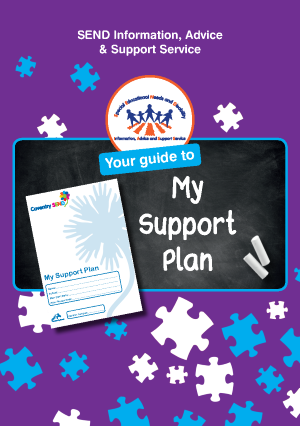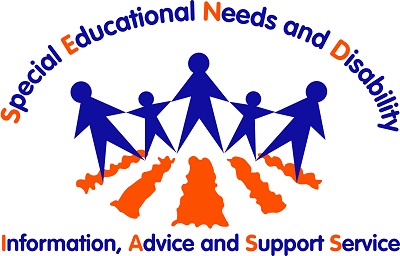My Support Plan

What is My Support Plan?
My Support Plan is a document that can be used to clearly identify the hopes and aspirations, Special Educational Needs (SEN), and provision needed to ensure your child/young person achieves the best possible outcomes in their education setting.
It is designed for youngsters who have been identified with Special Educational Needs - meaning that they receive provision which is different from or additional to that is normally available to pupils of the same age due to their learning difficulty or disability. To support these SEN may need input from a range of professionals outside of those working in their current educational setting.
When should I get a My Support Plan?
Whatever stage of their educational journey - in the early years, school or in further education - children and young people with SEND should have any needs identified and regularly monitored. This is normally done by the setting, with either a class teacher or SENCo taking the lead, with input from the child/ young person and their parents/carers.
It is expected that this input is evidenced through a form of paperwork - this might be something developed by the individual setting, like an Individual Education Plan (IEP), student support plan or other equivalent. It could also use a My Support Plan.
However, it is expected that settings will use My Support Plan for those children and young people where there is a need to combine and co-ordinate support from several different professionals or agencies. This might mean the child/ young person has support from:
- An Educational Psychologist
- A specialist teacher
- A health professional, such as Speech & Language Therapist, physiotherapist, Occupational Therapist, or CAMHS worker
- A social worker or Early support/Family Hub worker
Where appropriate, these professionals would be expected to be involved in contributing to the My Support Plan.
The My Support Plan might also be appropriate when:
- A child/young person is transitioning between two settings e.g. from nursery into school; school into college.
- When a child/young person’s learning needs have not responded to the setting and single agency intervention.
- The setting is considering requesting an Education Health and Care Needs Assessment (EHCNA) for a child/young person.
What part should the child/young person and a parent/carer have in a My Support Plan?
In line with the basic principles outlined in the Children and Families Act 2014, participation of all parties involved in decision making about a child/young person, including the child young person and their parents/carers, should be at the centre of any discussions.
The setting should aim to collect the views of the child and parent before the first My Support Plan meeting, with the meeting itself bringing them together with teachers, key workers and professionals to identify the needs and provision required.
Following the drafting of the My Support Plan, children/young people and their parents should be able to see it and suggest any changes before it is used.
Once it is agreed, the plan should be reviewed on a regular basis. It is expected that this would be on a termly basis, to fit in with the expectation that progress is reviewed on a regular basis, and at least three times per year. (See 5.43 - 5.47 for Early Years; 6.64 - 6.71 for School; & 7.19 - 7.21 for Further Education of the SEND Code of Practice)
What’s the difference between a My Support Plan and an EHC Plan?
This can be a bit confusing given they are both called “plans” and the documents used look very similar - however there are some important differences to be aware of.
An Education Health and Care Plan (EHCP):
- is a statutory document which is created following a specified assessment co-ordinated by Coventry’s Statutory Assessment and Review Team (START).
- specifies special educational provision in section F and this must be provided.
- can be appealed through the SEND First-tier Tribunal if a parent or young person wants to change certain elements within the plan.
A My Support Plan:
- is co-ordinated by the educational setting and has no legal status.
- does not have a requirement to involve a particular professional or agency in assessment or provision.
- cannot be appealed to the SEND Tribunal.
For further information about the My Support Plan, please contact the SENCo at your child/young person’s educational setting. There is also further information available on Coventry’s Local Offer.
What parents have said about My Support Plan
"Our hopes and aspirations were gathered by sitting together as a team. Everybody was involved, even my son, and his piece is in the plan for everyone to have a look at and know what he wants."
"I was there when the paperwork was done and everyone had their say. I could say it as it was and it was then phrased in the correct way. It’s thorough, so you can’t miss anything out!"
"We all worked together! It was very straight forward and if anyone didn’t agree it was discussed and an outcome came from it."

